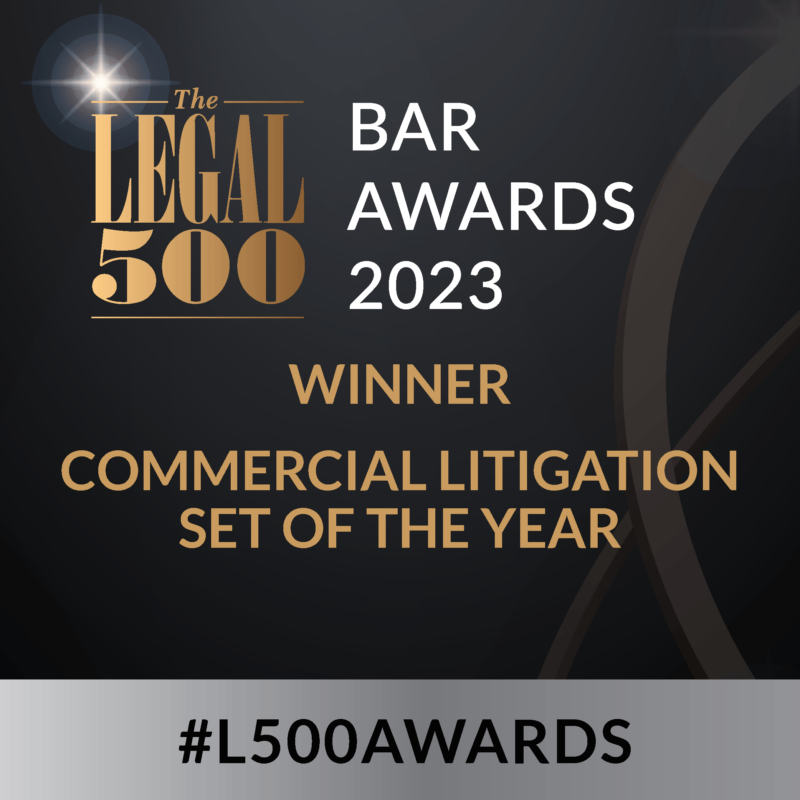Preliminary issues determined at first instance in landmark £1.1bn business interruption insurance claim
Adam Kramer KC and William Day, together with Ben Lynch KC, David Pliener and Louis Zvesper, appeared for Stonegate in a trial of preliminary issues instructed by Fenchurch Law. Stonegate is a major owner and operator of pubs, bars, restaurants and other hospitality venues in the UK. The claim is for £1.1bn in business interruption losses arising from the COVID-19 pandemic.
The preliminary issues concerned a number of significant points left unresolved by the Divisional Court and Supreme Court from the FCA test case, including (i) aggregation, (ii) the application of the Supreme Court’s causation test from the FCA test case to losses and closures after the policy period, and (iii) whether government support (such as furlough payments) received by Stonegate should be brought into account. Stonegate’s preliminary issues acted as the lead test case for these issues, with similar issues tried in two other cases (Various Eateries and Greggs) heard immediately after Stonegate. All three judgments have been handed down together by Butcher J today.
In Stonegate, the Court rejected the insurers’ primary case (put a number of different ways) that it was appropriate to aggregate all losses throughout the pandemic to some single occurrence in the origins of the pandemic (such as the coming into existence of the virus in China, or its initial outbreak in humans in Wuhan) and that, applying the Supreme Court’s causation analysis from the test case, all losses could also be aggregated to any one occurrence of the disease. However, the Court accepted (in part) the insurers’ fallback case that UK-wide government actions or decisions on at least 16 and 20 March 2020 constituted single occurrences to which losses could aggregate.
The Court concluded, having regard to the period of insurance under the relevant policy (which ended on 30 April 2020), that Stonegate could not make out a case for causation beyond the end of the first lockdown, subject to exceptions (such as deaths, Long COVID, certain cancellations, loss of momentum from stalled relaunches/refurbishments, and start up costs). In doing so, it clarified the circumstances in which the causation test from the FCA test case was applicable. The Court also rejected the insurers’ primary case on causation that policy period disease did not cause indemnity period losses beyond the first renewal of the lockdown after the end of the period of insurance.
On government support, the Court concluded that furlough payments and business rates relief ought to be brought into account on a proper construction of the savings clause and pursuant to principles of the doctrine of subrogation in contracts of indemnity and, in particular, of insurance.
The Stonegate judgment ([2022] EWHC 2548 (Comm)) is here. The Various Eateries judgment ([2022] EWHC 2549 (Comm)) is here. The Greggs judgment ([2022] EWHC 2545 (Comm)) is here.








